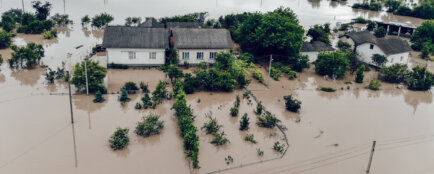When you will receive the insurance benefit
An insurance benefit is the amount of money that an insurance company pays to the policyholder or other beneficiary (e.g. the injured party) in the event of an insured event that is covered by an insurance policy, for example, a life insurance policy. You will usually receive the insurance benefit after the following steps:
- Reporting the claim: You must report the claim to your insurer immediately after the occurrence of the insured event (e.g. car accident, theft or loss of luggage).
- Documentation and evidence: the insurance company will ask you to provide the necessary documents and evidence related to the claim. This may include photographs, medical reports, police reports, invoices for repairs, etc.
- Investigation and assessment: the insurance company will carry out its own investigation and assessment of the damage. In some cases, an inspection of the site of the damage or further expert opinions may be required.
- Decision and payment: once the investigation has been completed and your claim has been approved, the insurance company will issue a decision on payment of the claim. Depending on the complexity of the case and the speed of your cooperation, this process can take anywhere from a few days to several weeks.
- Payment of money: once the claim has been approved, the amount will be transferred to your bank account or paid in another agreed way.
Are you solving a similar problem?
Did the insurance company refuse to pay your claim?
We will be happy to help you with this problem. We will assess your case and draft a proposal for legal services to resolve it within 24 hours. If you then decide to entrust its solution in our hands, you have the drafting free of charge.
I want to help
- When you order, you know what you will get and how much it will cost.
- We handle everything online or in person at one of our 6 offices.
- We handle 8 out of 10 requests within 2 working days.
- We have specialists for every field of law.
In practice, it may look like this:
A fire occurs in your home and destroys your brand new kitchen. You should inform your insurance company immediately after the damage occurs. The insurance company will instruct you on what steps to take and what documents to provide. These documents include photographs of the damage, a list of damaged items, an estimate of the damage from experts, and possibly a certificate from the fire department or other relevant authorities.
The insurance company will conduct an investigation, which may include an inspection of the damage site, interviews with witnesses or expert reports. It may invite a loss adjuster to carry out a detailed assessment of the damage. Once the investigation is complete, the insurer will decide whether to pay the claim and will inform you of the outcome and the amount of the claim. Once the claim has been approved, the insurer will make payment to your bank account or by other agreed means.
How the amount of the insurance benefit is determined
The amount of the insurance benefit is determined when the insurance contract is negotiated. The final amount you receive for a claim therefore depends on the type of insurance you have taken out. Specifically, there are three basic types:
- Indemnity insurance (claims-made insurance): this insurance is designed to compensate you for actual damages that result from an insured event. The indemnity is therefore determined by the actual amount of damage suffered by the insured. The insurer thus pays an amount equivalent to the cost of repairing, restoring or replacing the damaged or lost property. A practical example is home insurance, where in the event of damage or loss of property, the insurer will pay the cost of repair or replacement.
- Endowment insurance: This insurance is based on a fixed amount agreed in the insurance policy, regardless of the actual amount of damage. The benefit is therefore fixed and does not depend on the amount of the loss. The insurer will pay the agreed amount regardless of the actual costs of the claim. A practical example is life insurance where, in the event of the death of the insured, the insurance company pays the agreed amount (e.g. CZK 1 million) to the beneficiaries regardless of the actual financial impact on the survivors.
- Percentage benefit: The percentage benefit is expressed as a percentage of a certain amount, which can be either the value of the insured property or the total cost of the insured event.
Tip for article
Tip: Did a skier hit you on the slopes and injure you? Did your neighbour’s dog pounce on you and bite right into your new leather briefcase? Or did a distracted driver scrape the side of your car while parking at the supermarket? Find out what the principles of compensation are.
You can also claim from more than one insurance company if you have insurance with them. This practice is called multiple insurance and consists of having one thing insured with more than one insurance company for the same or similar cover. In the event of a claim, the insurers agree to pay on a pro rata basis, which means that each insurer will pay a proportionate amount of the loss according to the amount of cover. You will therefore only ever receive an amount that realistically corresponds to the damage (and the value of the insured item). Otherwise, it would be a criminal offence of insurance fraud.
Let’s explain it with an example:
Mr Novák has his house insured by two insurance companies: insurance company A covers the house for CZK 1 000 000, while insurance company B provides cover for CZK 500 000.
One day a fire occurs and causes damage to the house of CZK 600 000. In this situation, the insurance claim is divided between the insurance companies according to their share of the total insurance.
The total sum insured is CZK 1 500 000 (CZK 1 000 000 from Insurance Company A and CZK 500 000 from Insurance Company B). The share of each insurance company in the total sum insured is as follows:
- Insurance Company A covers 2/3 (66.67%), which is CZK 1 000 000 of the total CZK 1 500 000.
- Insurance company B covers 1/3 (33.33%), which is CZK 500 000 of the total CZK 1 500 000.
On the basis of these shares the indemnity for the damage caused is also distributed:
- The total damage is CZK 600 000.
- Insurance company A pays 66.67% of this amount, which is CZK 400 000.
- Insurance company B pays 33,33 % of this amount, which is CZK 200 000.
In total, Mr Novák will receive CZK 600 000, which will fully cover the damage caused by the fire.
When you won’t get an insurance claim
Insurance benefits may be denied or reduced in several situations. It all depends on the type of insurance and the specific terms of the contract. The most common reasons why a client will not receive an insurance benefit include:
- Insurance exclusions: insurance companies have exclusions in their contracts, which are specific situations or types of damage that are not covered by the insurance. For example, damages caused by war, drunkenness, or intentional acts of the insured.
- Failure to comply with policy conditions: If the insured fails to meet the obligations stated in the policy, such as failing to report changes that increase the risk or failing to maintain the insured property in proper condition, benefits may be denied.
- Delay in premium payments: If the insured fails to pay premiums on time, the insurer may suspend or cancel coverage. In the event of a claim, the insured may not receive benefits.
- Intentional infliction of damage: If it is proven that the insured caused the damage intentionally in order to obtain the insurance benefit, no benefit will be paid and the insured will face legal consequences.
- Insufficient security of property: If the insured has failed to take specified security measures (e.g. installing an alarm, locking the property), the insurance company may refuse to pay out in the event of theft.
- Late reporting of a claim: If the insured fails to report a claim in time as specified in the contract, the insurer may refuse to pay. This is because timely notification is important for proper investigation of the claim and determination of the validity of the claim.
- If the cost of the claim exceeds the agreed limit of cover, the insurer will only pay up to the limit and the insured will pay the rest.
- Insufficient proof of loss: if the insured fails to provide the necessary documents confirming the occurrence and amount of the loss (e.g. police report, photographs, invoices), the insurance company may refuse or reduce the benefit.
Tip for article
Tip: Always read your insurance policy carefully if you want to avoid problems with performance. Or take the help of a professional who will read the contract, explain it to you and, most importantly, not let you sign anything you don’t want to.
How to defend yourself when the insurance company refuses to pay
If an insurance company refuses to pay a claim, you have several options to defend yourself:
- Check the policy and terms and conditions: read the policy and all its terms and conditions carefully. This will tell you whether the insurer has a legitimate reason for refusing to pay.
- Contact the insurance company itself: Ask the insurer for a written explanation of why it has refused to pay. This may be an ambiguity that can be resolved by explaining or adding documentation.
- Appeal: appeal the insurance company’s decision. In your appeal, include all relevant information, evidence and arguments as to why your claim should be approved. Include with your appeal any additional evidence that could support your claim (photographs, witness statements, expert reports).
- Contact the financial arbitrator: If you are unable to reach an agreement with the insurance company, you can file a complaint with the financial arbitrator. A financial arbitrator is an independent body that resolves disputes between consumers and financial institutions, including insurance companies.
- Contact the Czech National Bank (CNB). You can therefore lodge a complaint with the CNB to investigate an insurance company’s practices if you suspect a breach of the law or unfair practices.
- Legal advice: If all the previous steps fail, it is time to send the insurance company a pre-suit notice followed by a lawsuit.
Tip for article
Tip: It pays to have an experienced attorney on your side through all of these steps. We will be happy to communicate with the insurance company, the financial arbitrator and the CNB on your behalf. We will write your appeal and formal complaint. And, if necessary, we will send a pre-suit demand letter or lawsuit to the insurance company and then represent you in court.
Summary
In order to obtain an insurance claim, it is necessary to report the claim correctly, provide the required documentation and cooperate with the insurance company’s investigation. However, it is important to be aware of conditions and exclusions that may lead to a denial of benefits. If the insurance company refuses to pay, you have several options to defend yourself, including an appeal, a complaint to a financial arbitrator or the Czech National Bank, and, as a last resort, legal action. Careful reading of the insurance policy and consultation with a professional can prevent unpleasant surprises and ensure that your rights are protected and claims are satisfied.




